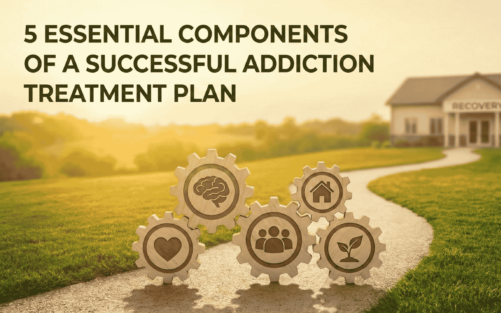If you’ve been digging through the New York Times crossword recently, you might have stumbled upon the clue: “cause of low vitality.” The answer, as savvy solvers know, is a six-letter word: ANEMIA.
But life isn’t a puzzle grid. While anemia is a correct and common answer, feeling constantly drained is a real issue that affects millions. If you’re searching for the “cause of low vitality,” it’s time to look beyond the crossword and understand what might truly be sapping your energy.
This guide will break down anemia and other common causes of low vitality in simple terms. We’ll also give you practical steps to reclaim your energy and feel like yourself again.
What Is Anemia and How Does It Cause Fatigue?
Anemia is a medical condition where your blood doesn’t have enough healthy red blood cells. These cells are like tiny delivery trucks. Their job is to carry oxygen from your lungs to every part of your body. Your body’s cells need oxygen to create the energy that powers you through your day.
When you have anemia, this delivery system breaks down. With fewer trucks on the road, less oxygen gets to your tissues and organs. This leaves you feeling tired, weak, and sluggish—the textbook definition of low vitality.
Common types include iron-deficiency anemia (the most common), and vitamin-deficiency anemias (like lacking B12 or folate).
Key symptoms of anemia include:
- Extreme tiredness (fatigue)
- Pale or yellowish skin
- Shortness of breath
- Dizziness or lightheadedness
- Cold hands and feet
Other Common Reasons You Might Feel Drained
Anemia is a major cause, but it’s not the only one. Low vitality can come from many different sources. Often, it’s a mix of a few things.
1. Poor Sleep Quality
It’s not just about how long you sleep, but how well you sleep. Conditions like sleep apnea (where your breathing stops and starts during sleep) can severely fragment your sleep, leaving you exhausted the next day even if you were in bed for 8 hours. Insomnia and restless leg syndrome are other common sleep thieves.
2. Hormonal Imbalances
Your hormones are your body’s messengers. When they’re out of balance, your energy can crash.
- Thyroid Issues: An underactive thyroid (hypothyroidism) dramatically slows your body’s engine, leading to fatigue and weight gain.
- Low Testosterone: While often associated with men, low testosterone can affect anyone and is a significant source of low energy, mood changes, and decreased stamina.
3. Mental Health Factors
Your mental and physical health are deeply connected. Chronic stress, anxiety, and depression are huge energy drainers. Dealing with constant worry or low mood is emotionally exhausting, which directly translates to physical fatigue.
4. Other Lifestyle and Health Factors
- Diet: Not eating enough nutritious food or skipping meals can cause your blood sugar to crash, leaving you without fuel.
- Dehydration: Even mild dehydration can make you feel tired and unable to concentrate.
- Other Conditions: Diabetes, heart disease, and long-term viral infections can all have profound fatigue as a primary symptom.
How to Fight Back and Boost Your Vitality
The good news is that low vitality is often manageable. Here’s where to start.
1. Look at Your Diet
Focus on whole, nutrient-rich foods. If you suspect anemia, incorporate iron-rich foods like lean red meat, spinach, lentils, and fortified cereals. Pair them with vitamin C (like a glass of orange juice) to help your body absorb the iron better. Stay hydrated with water throughout the day.
2. Prioritize Sleep Hygiene
Create a routine. Try to go to bed and wake up at the same time each day, even on weekends. Make your bedroom dark, quiet, and cool. Avoid screens for at least an hour before bed. If you snore loudly or gasp for air at night, talk to a doctor about a sleep study.
3. Move Your Body (Yes, Really!)
It might seem counterintuitive, but regular exercise is a powerful energy booster. It improves your heart health, helps deliver oxygen more efficiently, and releases endorphins that improve mood. You don’t need to run a marathon—a daily 30-minute walk can work wonders.
4. Manage Stress
Find what helps you unwind. This could be deep breathing exercises, meditation, listening to music, spending time in nature, or talking to a friend. Giving your mind a break is crucial for recharging your physical energy.
When Should You See a Doctor?
It’s important to know when to seek professional help. You should talk to a doctor if:
- Your fatigue has lasted for more than a few weeks.
- It’s severe and doesn’t get better with rest.
- It’s paired with other symptoms like fever, unexplained weight loss, shortness of breath, or deep sadness.
- It interferes with your work, safety, or family life.
A doctor can help find the root cause. They might do a simple blood test to check for anemia, thyroid issues, or vitamin deficiencies. From there, you can get the right treatment, which could be as simple as dietary changes or a supplement.
Read More: Nomurano: Find Peace and Purpose in a Slower Way of Living
The Bottom Line
The NYT crossword answer for “cause of low vitality” is anemia. But in real life, the answer is rarely that simple. Listening to your body and taking a holistic look at your sleep, diet, stress, and overall health is the first step toward solving your own energy puzzle. Don’t just guess—take action to get your vitality back.











